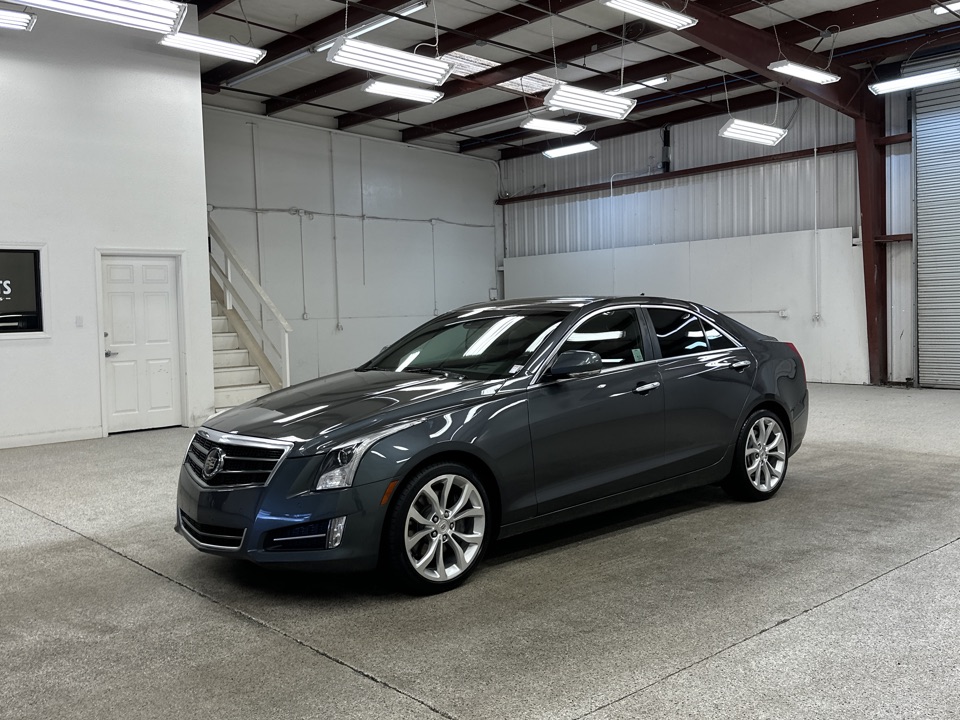The automotive landscape is a dynamic and complex market where the value of a vehicle can fluctuate significantly over time. One of the most crucial factors for buyers, especially those considering used or off-lease cars, is how well a vehicle retains its value.
Off-lease cars—vehicles returned to dealerships after their lease terms expire—often present a golden opportunity for savvy buyers to acquire well-maintained, relatively new cars at a fraction of the new-car price. However, not all off-lease vehicles are created equal when it comes to value retention and desirability.
Some models consistently hold their value and attract strong demand, while others depreciate rapidly and become less attractive to both buyers and dealers. Understanding which vehicles fall into these categories is essential for anyone navigating the used car market.
Off-lease cars typically come with several advantages over traditional used vehicles. They often have lower mileage, have been regularly serviced under warranty, and come with detailed maintenance records. This makes them more appealing to buyers who want a reliable vehicle without paying full price for a brand-new model.
However, despite these perks, the market perception of certain makes and models can greatly affect how much value they retain and how quickly they sell once they hit the used car lots.
Some vehicles enjoy a strong reputation for reliability, quality, and brand appeal that translates into impressive resale values. Others, even if mechanically sound, may suffer from poor brand perception, outdated design, or maintenance concerns that reduce their attractiveness.
In this article, we will explore five off-lease cars that consistently retain their value and remain highly desirable in the used car market. These models demonstrate a blend of reliability, versatility, strong brand loyalty, and often, a unique niche that keeps demand high.
Whether it’s the rugged Toyota Tacoma, the versatile Honda CR-V, or the luxury and reliability of the Lexus RX, these vehicles stand out as smart choices for off-lease buyers looking to get the most bang for their buck. We will dive deep into the factors contributing to their value retention, including build quality, reputation, consumer demand, and overall market trends.
Conversely, the article will also shed light on five off-lease cars that dealers tend to pass on—vehicles that experience steep depreciation or face challenges in the used market. Models like the Nissan Versa and Chrysler 200 suffer from issues such as poor reliability perception, lackluster performance, or diminished brand prestige.
These factors discourage both dealers and buyers, resulting in lower resale values and longer times on the lot. Understanding why certain vehicles fall out of favor is equally important, as it helps prospective buyers avoid costly mistakes and dealers prioritize inventory that sells quickly.
By contrasting the strengths and weaknesses of these two groups, the article aims to provide a comprehensive perspective on off-lease vehicle buying and selling dynamics. For consumers, this knowledge can guide smarter purchasing decisions, helping identify vehicles that offer long-term value and reliability.
For dealers and industry observers, it underscores the critical elements that influence market desirability and profitability. Ultimately, recognizing which off-lease cars retain their value and which ones dealers avoid offers valuable insights into the economics of vehicle depreciation, consumer preferences, and brand strategy in the ever-evolving automotive marketplace.
As off-lease vehicles continue to represent a significant portion of the used car market, the importance of understanding value retention has never been greater. Whether you’re a first-time buyer looking to maximize your investment or a dealer seeking to optimize your inventory, the following analysis provides essential guidance on navigating this nuanced segment.
Let’s begin by examining five off-lease cars that maintain strong value and why they continue to attract eager buyers long after their original leases end.
Also Read: 5 Cars With Android Auto That Works and 5 That Disconnect Constantly
5 Off-Lease Cars That Retain Value
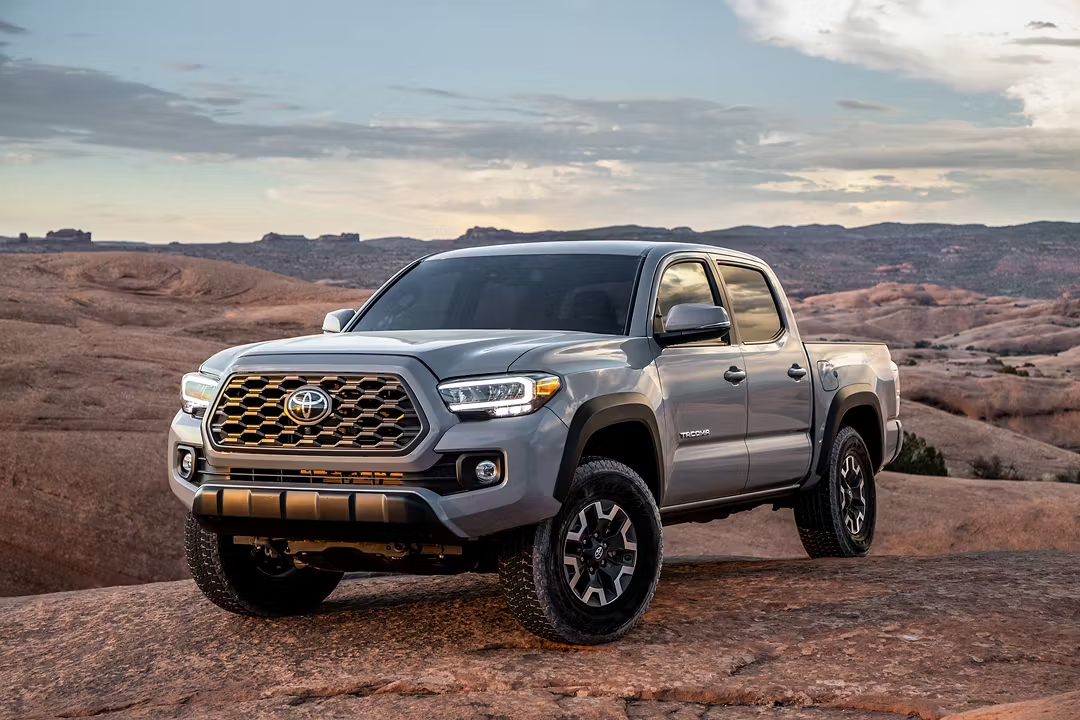
1. Toyota Tacoma
The Toyota Tacoma is widely regarded as one of the most reliable and durable midsize pickups on the market, which is a critical reason it retains value so well in the off-lease market. The truck’s legendary reputation for longevity means that even after three years of use, the vehicle still commands strong demand from buyers.
Tacomas frequently appear on lists of vehicles that can run for over 300,000 miles with minimal major repairs, which instills confidence in buyers who are wary of the risks associated with used trucks.
This reliability is not accidental; Toyota’s stringent quality control and use of proven engine and transmission technology help maintain its status as a trusted workhorse.
In addition to reliability, the Tacoma’s versatility makes it a highly sought-after option. It serves well as both a daily driver and a capable work or recreational vehicle. Whether buyers want a truck for towing, hauling, or off-road adventures, the Tacoma is a well-rounded option that appeals to a wide audience.
The availability of different cab and bed configurations, plus options like off-road-focused TRD packages, means buyers can find an off-lease Tacoma that suits very specific needs without paying new-car prices. This diversity in appeal fuels strong resale demand.
Another important factor is Toyota’s conservative production strategy. Unlike some competitors who flood the market with their trucks, Toyota carefully controls Tacoma production volumes, helping maintain a healthy balance between supply and demand.
This scarcity effect boosts resale values since buyers are often willing to pay a premium for a truck that is widely regarded as the best in its class. Dealers know this well and often prioritize Tacoma inventory for their used lots because these vehicles sell quickly and at a healthy profit margin.
The Toyota Tacoma also benefits from strong aftermarket support and widespread availability of parts. Buyers understand that maintenance and repairs will be relatively straightforward, reducing concerns about future expenses.
Many off-lease Tacomas also come certified pre-owned, with warranties that extend beyond the original lease period, giving buyers additional peace of mind. This combination of reliability, versatility, controlled supply, and brand reputation makes the Tacoma a perennial favorite in the off-lease market for those prioritizing value retention.
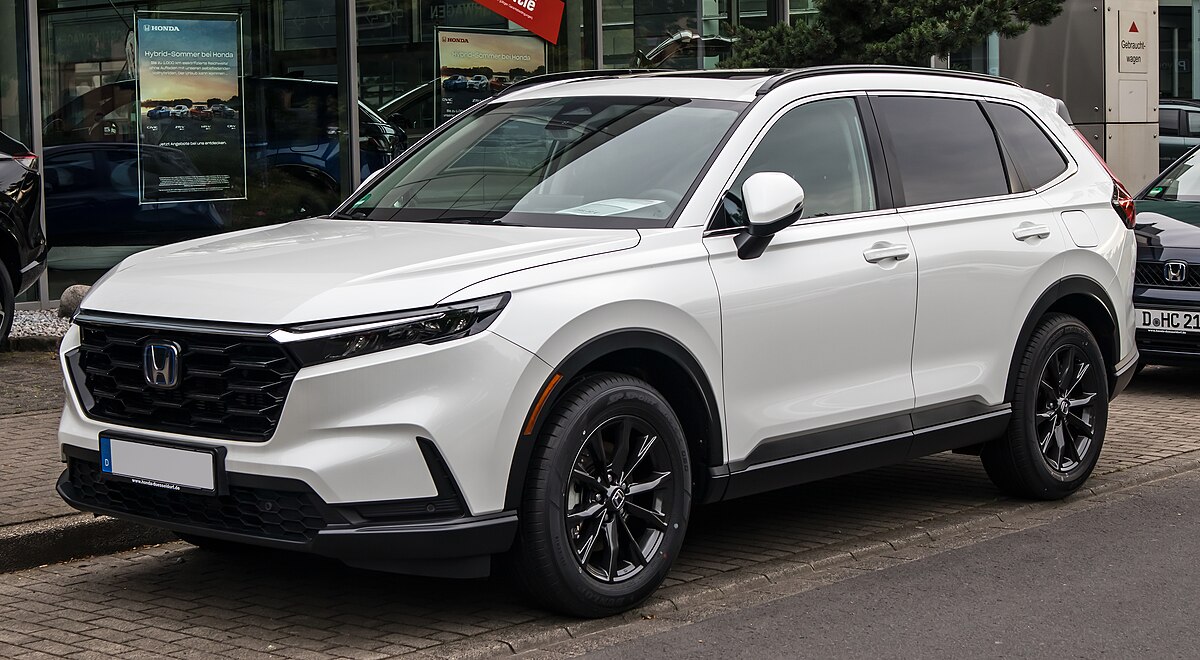
2. Honda CR-V
The Honda CR-V has solidified its position as one of the most reliable and practical compact SUVs available, which naturally translates into excellent off-lease value retention. For many buyers, the CR-V strikes the ideal balance between size, efficiency, and utility.
It offers a roomy interior with flexible cargo space, smooth handling, and a fuel-efficient engine lineup that appeals to families and commuters alike. Honda’s reputation for mechanical excellence enhances buyer confidence, especially in the used vehicle market, where reliability is paramount.
What sets the CR-V apart is its consistent track record of longevity. Many CR-V owners report achieving well over 200,000 miles with routine maintenance and minimal major repairs, which is a powerful selling point for off-lease buyers.
These vehicles come off lease at an age where the risk of expensive repairs is relatively low, especially if the previous lessee adhered to the recommended service intervals. This “sweet spot” makes off-lease CR-Vs highly attractive, fueling demand and keeping resale values strong.
Another critical element in the CR-V’s value retention is its steady stream of technological and safety upgrades. Over the years, Honda has introduced advanced driver assistance features, infotainment systems, and fuel-saving technologies, many of which are included in off-lease models.
This blend of modern amenities, along with Honda’s refined engineering, makes the CR-V feel contemporary and capable even as it ages. Buyers know they’re getting a vehicle that not only drives well but also offers important safety and comfort features.
Honda’s brand loyalty also plays a significant role. Many CR-V owners are repeat Honda customers, which boosts demand for used CR-Vs. This loyalty stems from positive ownership experiences, with customers appreciating the CR-V’s low cost of ownership, robust warranty coverage during the lease period, and reliable performance.
In a competitive compact SUV segment, the CR-V’s strong resale value is a reflection of these factors, making it a top choice for off-lease buyers seeking a practical, durable vehicle with solid future value.
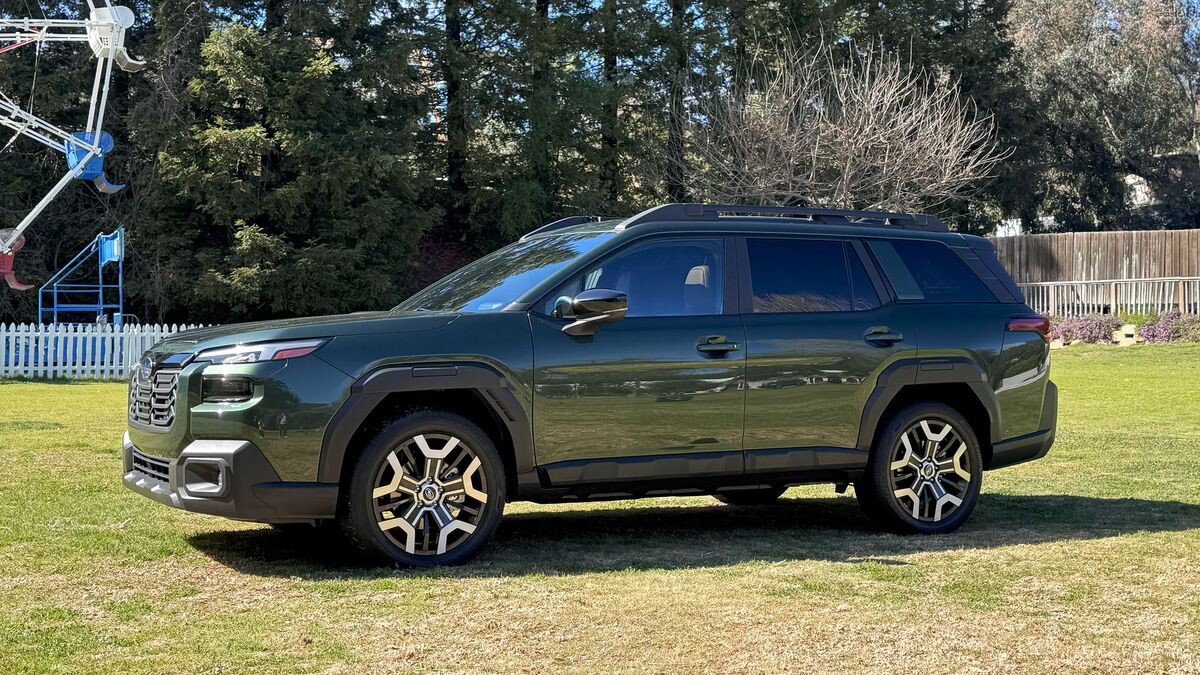
3. Subaru Outback
The Subaru Outback’s unique combination of crossover versatility, all-wheel drive, and rugged styling has earned it a strong foothold in the off-lease market, where it continues to command impressive resale values.
Subaru has cultivated a brand image synonymous with outdoor adventure and safety, and the Outback embodies these traits with its standard AWD, high ground clearance, and spacious interior.
Off-lease buyers are drawn to the Outback’s ability to handle varying weather conditions and terrain while still delivering everyday comfort and practicality.
A key factor underpinning the Outback’s value retention is its standard all-wheel-drive system. In many parts of the country, especially where snow or rain are common, AWD is a must-have feature, and Subaru is one of the few brands that offers it across most of its lineup.
This makes the Outback particularly appealing for buyers living in climates where year-round traction and safety are priorities. The fact that many off-lease Outbacks still have this feature as standard adds significant value over competitors who offer AWD only as an option.
The Outback also excels at blending utility with comfort. Its large cargo space, versatile rear seats, and smooth ride quality make it equally adept as a family hauler or weekend adventure vehicle.
Subaru has continued to refine the Outback’s interior with user-friendly infotainment systems and high-quality materials, which keep it competitive even as it ages. Buyers appreciate these features when purchasing an off-lease model, as it feels like a modern vehicle without the new car price tag.
Finally, Subaru owners tend to be highly loyal, often purchasing multiple Subarus over their lifetime and recommending the brand to others. This loyalty is supported by the Outback’s solid safety ratings, dependable performance, and strong resale value.
In the off-lease market, this translates to brisk sales and stable prices. Dealers know the Outback’s reputation and often prioritize it in their used inventories, confident it will sell quickly and retain its value better than many competitors.
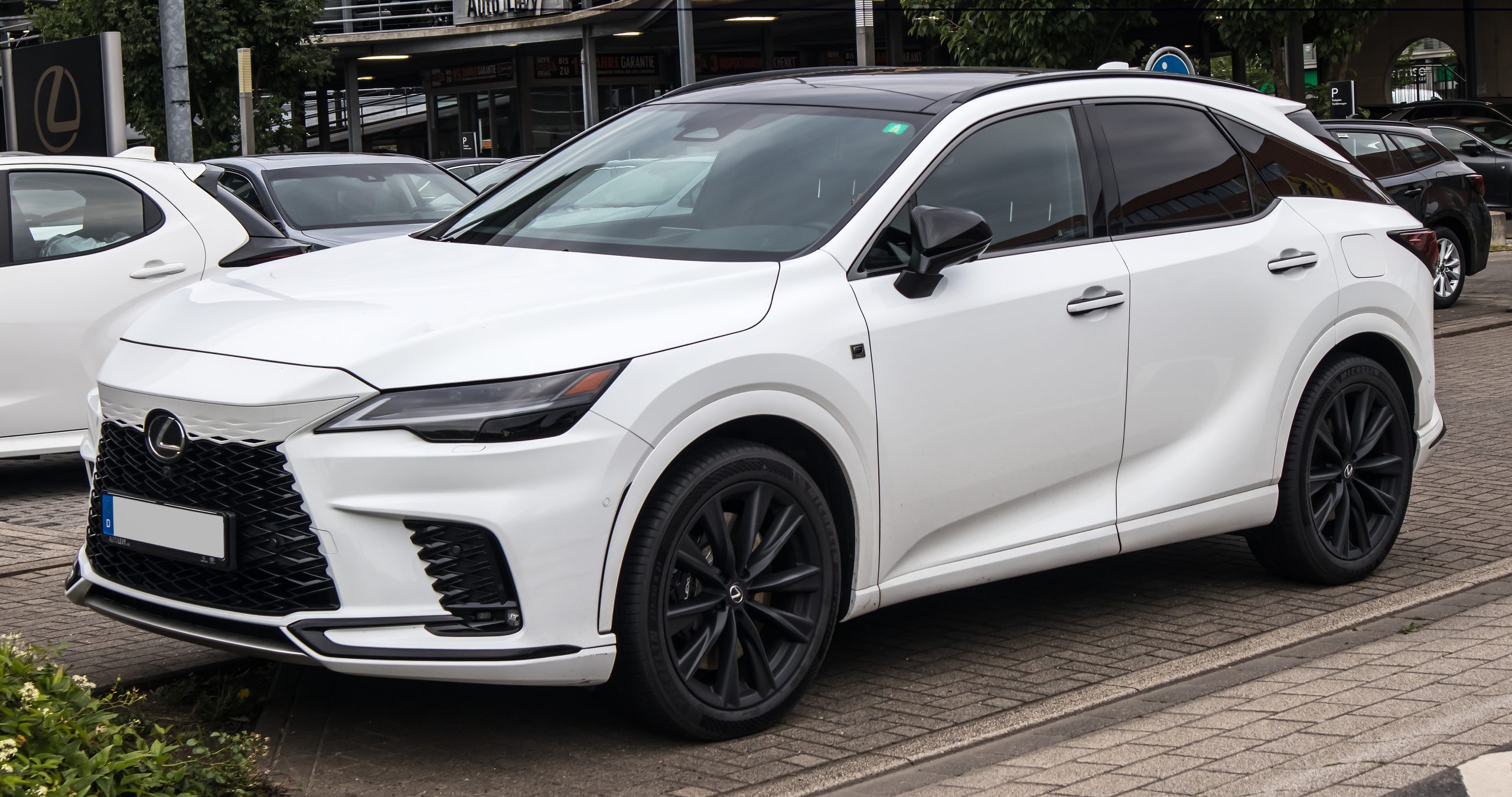
4. Lexus RX
The Lexus RX is a shining example of how luxury and reliability can combine to create a vehicle that retains value well beyond its original lease period. Lexus’s reputation for craftsmanship, comfort, and dependable engineering is well-known, and the RX embodies these qualities in the luxury midsize SUV segment.
Off-lease RX models appeal to buyers who want a premium vehicle without the steep depreciation typically associated with new luxury cars, making them a popular choice in the used market.
Reliability is the cornerstone of the RX’s strong value retention. Lexus consistently ranks at the top of reliability studies, and the RX’s proven V6 engines and hybrid variants demonstrate a balance of power and efficiency that meets the demands of discerning luxury buyers.
Many off-lease RX vehicles come certified pre-owned, with warranties that extend well beyond the original lease, giving buyers peace of mind and justifying higher resale prices. This reduced risk of costly repairs and maintenance enhances demand for used RXs.
The RX also offers an upscale and comfortable interior that ages gracefully. Premium materials, spacious seating, and advanced technology like adaptive cruise control, premium audio, and intuitive infotainment systems make the RX feel fresh and luxurious even after several years.
This attention to detail ensures that off-lease RX models do not feel outdated, an important consideration for buyers who want a luxury experience without paying new car prices.
Lastly, Lexus’s brand loyalty and reputation for customer satisfaction are key to the RX’s resale strength. Many Lexus buyers are repeat customers, which fuels steady demand for used RX models.
This demand, combined with limited depreciation relative to other luxury SUVs, positions the RX as one of the best off-lease vehicles for buyers seeking long-term value and comfort in a luxury package.
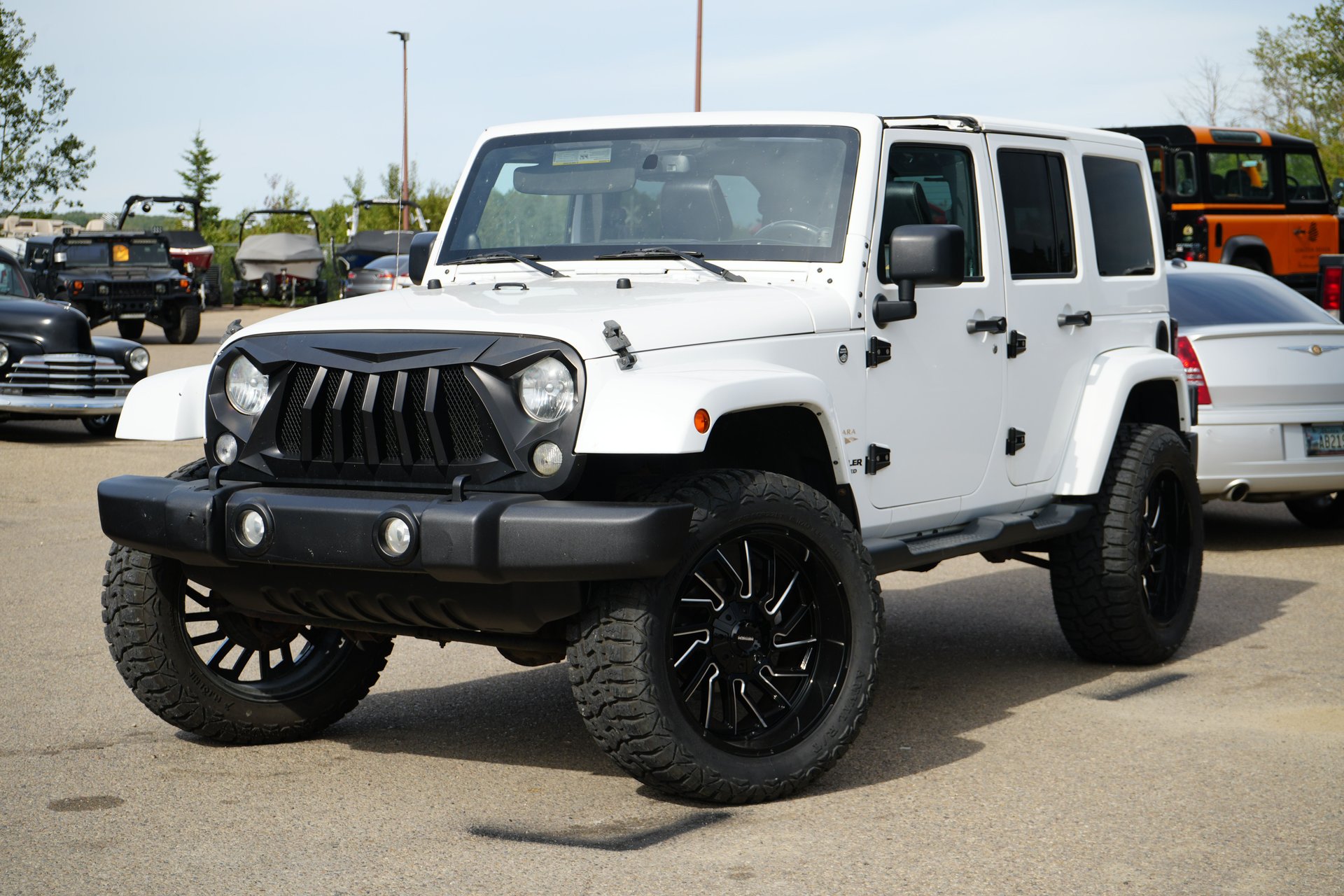
5. Jeep Wrangler
The Jeep Wrangler’s enduring popularity and cult-like following translate into exceptional value retention in the off-lease market. Few vehicles capture the imagination and lifestyle appeal like the Wrangler, known for its ruggedness, distinctive styling, and off-road capability.
Buyers appreciate the Wrangler’s unique blend of adventure readiness and everyday usability, making off-lease Wranglers some of the most sought-after vehicles in the used SUV segment.
A major contributor to the Wrangler’s strong resale value is its iconic design and customization potential. Unlike many SUVs, the Wrangler’s removable doors, fold-down windshield, and convertible roof make it stand out.
Enthusiasts and casual owners alike value these features, which enhance the vehicle’s “fun factor” and create a passionate buyer base. This passionate demand keeps resale values high, even for older off-lease models.
Jeep’s limited production runs and special editions further bolster the Wrangler’s desirability. Certain trims and factory upgrades, such as the Rubicon package, offer enhanced off-road features that attract buyers willing to pay premiums.
Additionally, Jeep’s consistent updates to technology and safety features ensure that newer off-lease Wranglers remain competitive and relevant in the market.
Finally, the Wrangler’s reputation for toughness and capability, combined with a strong aftermarket community, ensures that maintenance and upgrades are readily available.
While the Wrangler may have higher maintenance costs than some competitors, buyers view these as part of the vehicle’s rugged charm rather than a deterrent. This perception, combined with steady demand and limited supply, secures the Wrangler’s place as one of the best off-lease vehicles for retaining value.
5 Off-Lease Cars That Dealers Pass On
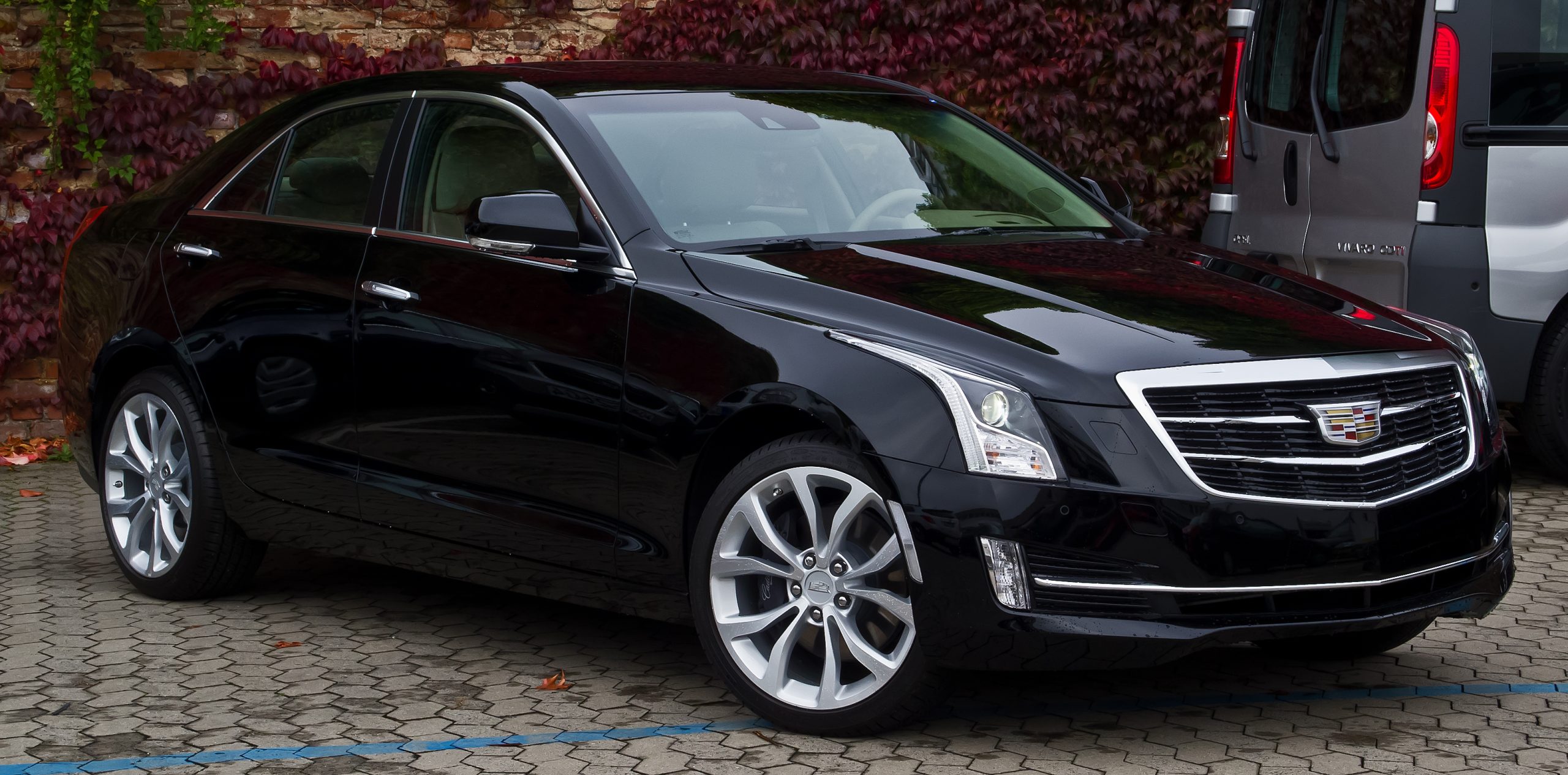
1. Cadillac ATS
The Cadillac ATS was GM’s attempt to compete with luxury compact sedans like the BMW 3 Series and Audi A4, but despite initial enthusiasm, it struggled to maintain strong resale values in the off-lease market. One major reason dealers tend to pass on these vehicles is the ATS’s mixed reputation for reliability and cost of ownership.
While Cadillac offers luxury appeal, the ATS is often criticized for higher-than-average maintenance and repair costs, which can scare off buyers looking for dependable daily transportation at a used-car price point.
Beyond maintenance concerns, the ATS struggled to find a distinct identity in a crowded luxury segment. Its driving dynamics and interior quality, while respectable, didn’t consistently match or surpass German competitors, leaving buyers hesitant to pay a premium for a brand that hasn’t fully shaken off its American luxury stereotypes.
When ATS models return from lease, they often suffer from steep depreciation because the market perceives them as less desirable relative to their more prestigious rivals, which dealers notice and act upon by reducing interest in acquiring these vehicles.
The interior and technology offerings also played a role in the ATS’s declining popularity. Early models came with infotainment systems and user interfaces that lagged behind competitors in ease of use and responsiveness.
This technological gap diminished the perceived value of off-lease ATS models, especially as buyers grew more tech-savvy and demanded more seamless connectivity and advanced driver-assist features. While later model years addressed some of these shortcomings, the damage to the vehicle’s reputation was already in place.
Finally, Cadillac’s overall brand perception impacts the ATS’s desirability in the used market. Despite improvements in design and quality over recent years, Cadillac still fights an uphill battle against well-entrenched European luxury marques.
The ATS’s limited production and narrower appeal mean fewer buyers are interested, causing dealers to pass on these vehicles in favor of models with more consistent demand and stronger resale history.
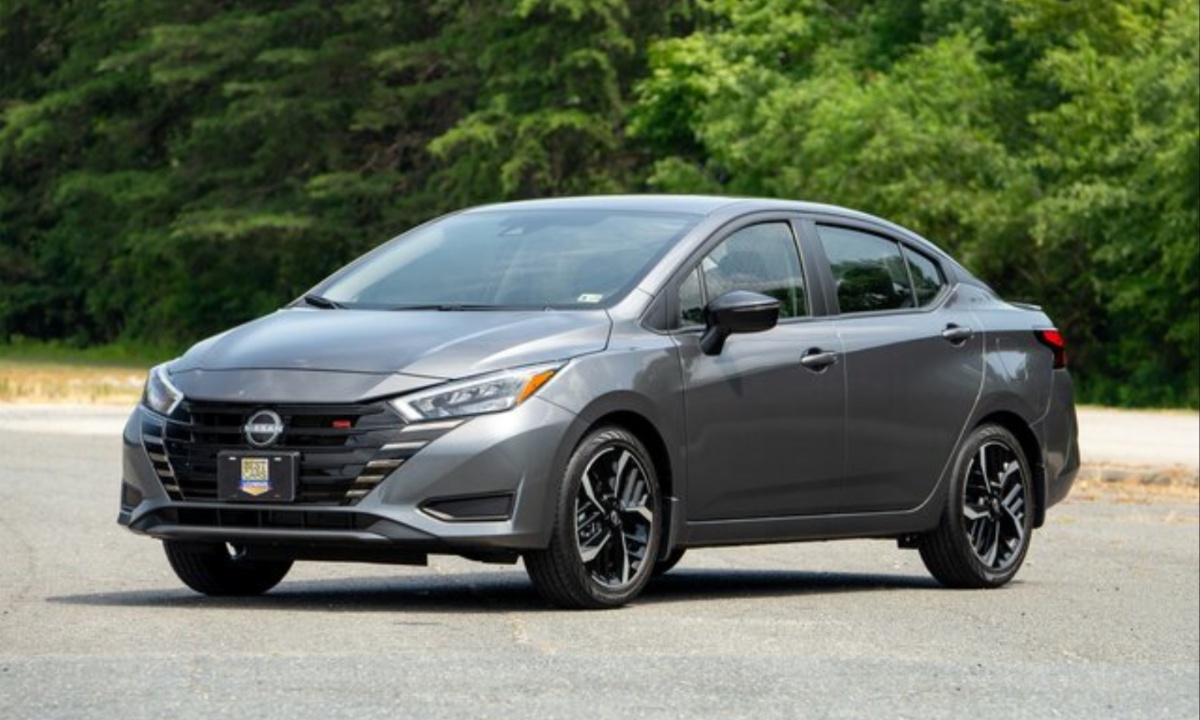
2. Nissan Versa
The Nissan Versa is known as one of the most affordable new cars on the market, but its low initial price and basic features translate into poor value retention in the off-lease arena.
Dealers often avoid used Versas because they depreciate sharply and are perceived as less desirable due to a sparse interior, limited power, and a reputation for being underwhelming in driving dynamics.
While the Versa is functional and economical, it generally doesn’t inspire much excitement or loyalty from buyers who are increasingly demanding even entry-level vehicles with better quality and tech features.
The Versa’s low price point also results in it being a favorite for fleet and rental car companies, which means many used Versas come off lease with significant wear and tear.
This usage history often leads to greater mechanical and cosmetic issues, making them less attractive options for dealers who want to offer vehicles with a strong chance of quick resale. The perception of the Versa as a “cheap” car makes it difficult to sell at profitable prices, which is why dealers tend to pass on it when given the choice.
In addition, the Nissan Versa lacks standout features or a distinctive design that could boost its appeal in the crowded subcompact segment. Buyers today have access to numerous affordable alternatives that offer better fuel efficiency, more interior space, and higher-quality cabins.
The absence of a compelling reason to choose the Versa over competitors contributes to its poor retention of value. Even with improvements in recent models, the Versa’s reputation for being a basic, no-frills car continues to hold it back.
Finally, Nissan’s brand image in the subcompact space has become overshadowed by rivals such as Hyundai and Kia, which offer longer warranties and more appealing designs.
These factors increase demand for those brands’ used cars while further marginalizing the Versa in dealer lots. The cumulative effect is a lack of enthusiasm from dealers and buyers alike, reinforcing the Versa’s status as a vehicle that struggles to retain value in the off-lease market.
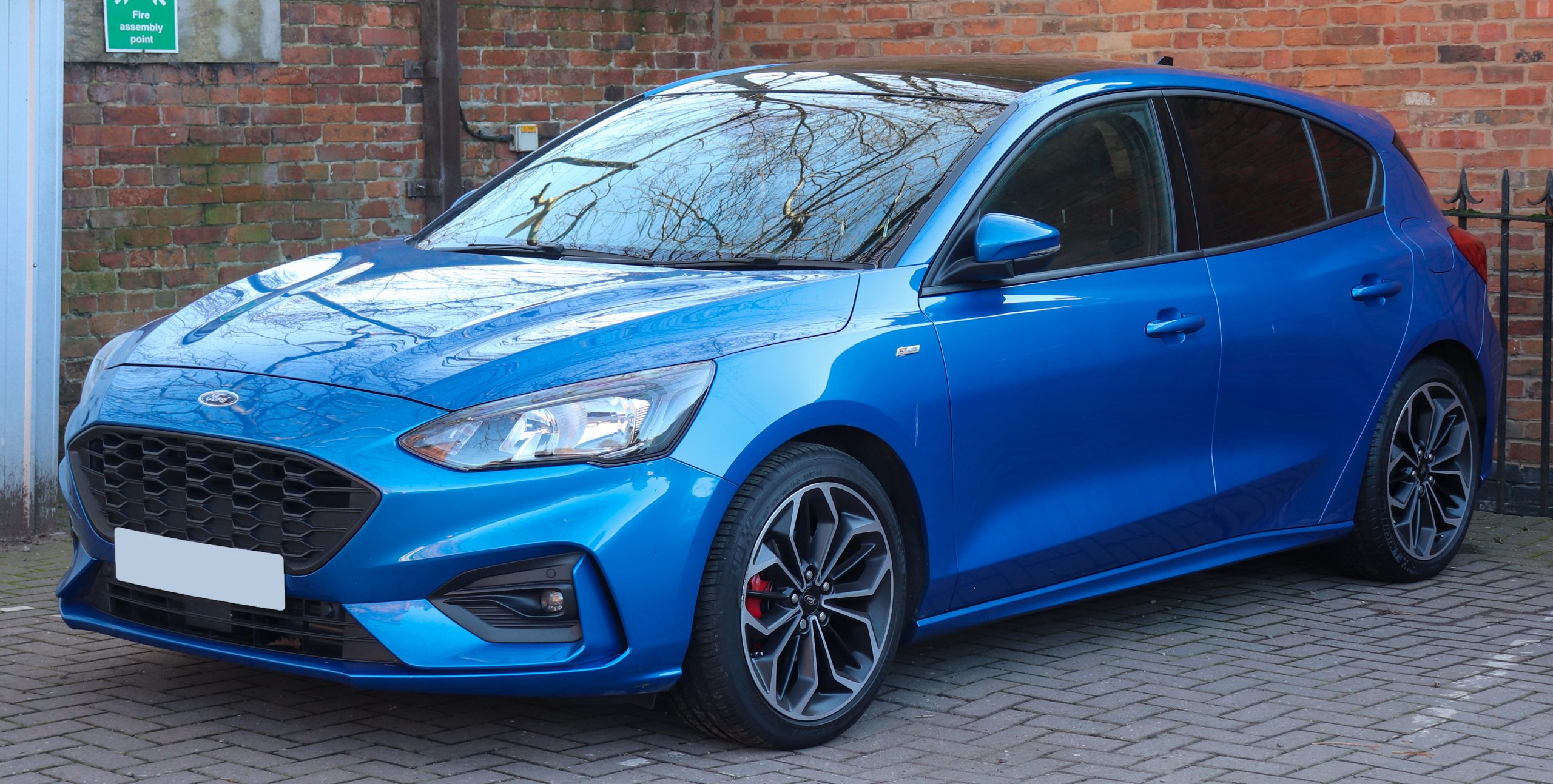
3. Ford Focus
The Ford Focus was once a popular compact car choice, but its off-lease value retention has declined sharply in recent years, leading many dealers to hesitate when considering these vehicles for resale.
One of the main reasons for this is the Focus’s history of reliability issues, particularly with earlier model years that featured problematic dual-clutch transmissions and other mechanical concerns. These issues contributed to negative perceptions of the model, causing buyers to be wary of used Focus cars and forcing dealers to discount heavily to move inventory.
Another factor is the shift in consumer preference away from compact sedans toward crossovers and SUVs. As more buyers gravitate toward higher-riding vehicles with perceived safety and utility advantages, the demand for used compact sedans like the Focus has waned.
Dealers, aware of this trend, tend to prioritize vehicles with better market appeal, meaning the Focus often sits longer on the lot and eventually gets sold at lower prices, eroding its value retention.
Additionally, the Focus’s interior quality and technology features have lagged behind competitors, especially in off-lease models that lack the latest driver-assist and infotainment upgrades.
Buyers in the used market expect more modern amenities even in affordable vehicles, and the Focus’s dated design and feature set make it less competitive. This further reduces demand and resale value, making dealers less inclined to invest in restocking off-lease Focus units.
Finally, Ford’s decision to discontinue the Focus in the U.S. market in favor of expanding its SUV lineup has affected the used car market dynamics.
With no new models being produced, parts availability and long-term support become concerns for some buyers, especially those considering used vehicles for extended ownership. This uncertainty weighs on resale values and dealer confidence, prompting many to pass on the Focus in favor of more current, supported models.
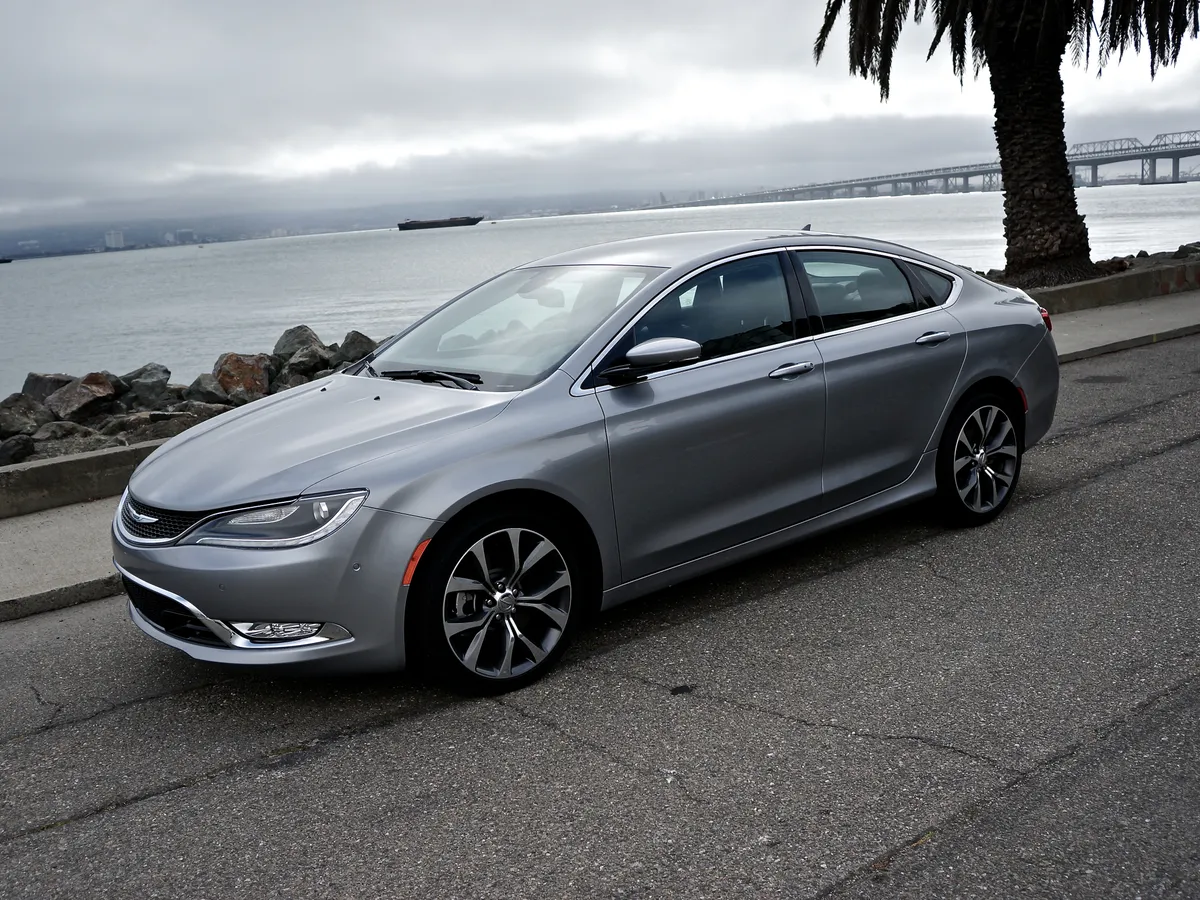
4. Chrysler 200
The Chrysler 200, a midsize sedan aimed at competing with vehicles like the Toyota Camry and Honda Accord, failed to make a lasting impression in the off-lease market due to a combination of poor reliability, unremarkable performance, and a fading sedan market.
Dealers often avoid the 200 because it has developed a reputation for frequent mechanical problems and subpar build quality compared to its segment leaders. This reputation discourages buyers who are increasingly focused on long-term dependability and cost of ownership.
One of the most significant blows to the Chrysler 200’s resale value was its transmission issues, particularly with the continuously variable transmission (CVT) used in many models.
These transmissions were prone to failures and costly repairs, leaving a lasting negative impression that depresses demand in the used market. Even as Chrysler attempted to improve the vehicle over the years, the lingering stigma remains a barrier to strong resale performance.
The Chrysler 200 also suffered from uninspired styling and a lack of distinctive features that could attract buyers in a competitive midsize sedan segment.
As crossovers and SUVs dominate the market, sedans need to offer clear advantages in space, comfort, or fuel economy to stand out. Unfortunately, the 200 fell short on multiple fronts, making it less attractive to used-car shoppers who have better options at similar or lower prices.
Finally, FCA’s (now Stellantis) overall brand perception has been a hurdle for the 200. While Chrysler has made strides in quality and design, it still battles perceptions of being less refined and reliable compared to Japanese and European rivals.
This perception, combined with a shrinking market for sedans, leads dealers to steer clear of the 200 in favor of vehicles with stronger demand and more optimistic resale outlooks.
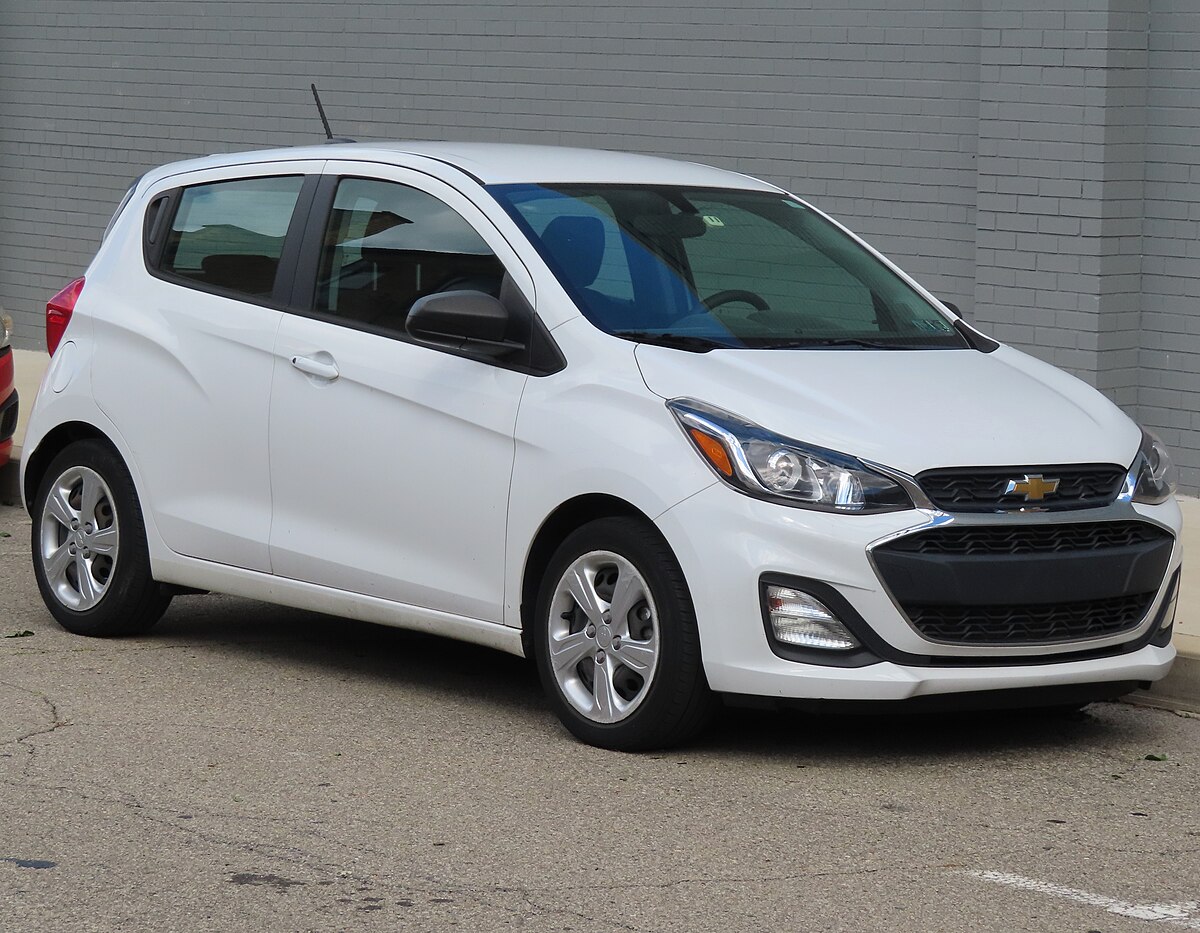
5. Chevrolet Spark
The Chevrolet Spark is an ultra-compact city car that appeals primarily to budget-conscious buyers or those seeking minimal transportation solutions. While its low purchase price can be attractive, dealers often pass on off-lease Sparks because they depreciate rapidly and have limited appeal beyond niche markets.
The Spark’s small size and basic features mean it’s often viewed as a starter or secondary vehicle, reducing demand in the used market and leading to poor value retention.
Another reason for the Spark’s weak resale value is its minimal safety and technology features compared to other vehicles, even in the subcompact segment.
Buyers increasingly expect modern connectivity options and advanced driver assistance systems, which are often missing or limited in Spark models. This gap makes it less competitive and less appealing for those looking for a used vehicle that meets today’s standards for safety and convenience.
The Spark also suffers from a perception of being underpowered and less comfortable on longer drives. Its small engine and lightweight construction, while great for urban maneuverability and fuel economy, don’t translate into a pleasurable driving experience for many buyers.
This perception limits its appeal mainly to city dwellers or as a second car, narrowing its market and depressing resale values. Finally, Chevrolet’s decision to discontinue the Spark in North America reduces dealer confidence in the model’s long-term parts availability and support.
While the Spark can be a practical choice for specific buyers, its limited market appeal and rapid depreciation encourage dealers to prioritize more versatile and profitable vehicles. Consequently, off-lease Sparks often struggle to find buyers willing to pay a fair price, reinforcing their status as vehicles dealers tend to pass on.
Also Read: 5 Cars With Cool Dash Designs and 5 That Feel 20 Years Old
In the intricate world of off-lease vehicles, value retention is a critical metric that dictates the success of both buyers and dealers in the used car market. Throughout this article, we have explored two contrasting sides of this equation: the off-lease cars that retain their value exceptionally well and the models that dealers often choose to pass on due to their rapid depreciation and weak market appeal.
Understanding the reasons behind these differences not only empowers buyers to make informed decisions but also enables dealers to curate inventories that maximize profitability and turnover.
The vehicles that tend to retain value are characterized by several common traits: outstanding reliability, strong brand loyalty, versatile design, and often a unique market niche. Take, for example, the Toyota Tacoma, a midsize truck that has built a reputation for unmatched durability and off-road capability.
Its blend of rugged utility, efficient performance, and Toyota’s reputation for quality ensures a steady demand for used Tacomas, even years after lease return. Similarly, the Honda CR-V remains a perennial favorite due to its balanced mix of practicality, fuel efficiency, and Honda’s reliable engineering.
These vehicles demonstrate that when automakers consistently deliver quality products that meet or exceed consumer expectations, their off-lease models continue to command impressive resale prices.
Luxury vehicles like the Lexus RX further illustrate how brand prestige combined with proven dependability can secure value retention. Lexus has cultivated a reputation for craftsmanship and customer satisfaction that extends well into the used market.
The RX appeals to buyers seeking premium features and comfort without the immediate depreciation hit new luxury cars often face.
Likewise, the Subaru Outback’s standard all-wheel-drive system and rugged versatility have carved out a unique position in the crossover market, making it highly desirable in regions with challenging weather or terrain.
On the flip side, the off-lease cars that dealers tend to avoid share a pattern of challenges that undermine their value. Vehicles such as the Nissan Versa and Chrysler 200 suffer from poor brand perception, reliability concerns, and often, a lack of compelling features compared to competitors.
These shortcomings diminish buyer confidence and reduce demand in the used market. As a result, dealers find it difficult to sell these vehicles at profitable prices, leading to lower priority on their lots.
Similarly, the Ford Focus and Cadillac ATS face declining appeal due to outdated technology, shifting consumer preferences, or unresolved mechanical issues. The Chevrolet Spark, while affordable, lacks broad market appeal and modern amenities, further limiting its value retention.
This divergence highlights a crucial lesson for consumers and dealers alike: not all off-lease cars are equally valuable investments. While an off-lease vehicle might seem like a bargain at first glance, deeper insights into the vehicle’s reliability, brand strength, and market demand are essential to avoid depreciation pitfalls.
Buyers seeking to maximize value should focus on vehicles with proven track records and strong resale performance, whereas dealers should carefully evaluate market trends to prioritize inventory that moves quickly and holds value well.
Moreover, these patterns reflect broader shifts in the automotive industry and consumer preferences. The growing popularity of SUVs and crossovers, for instance, has weakened the market for compact sedans, affecting models like the Ford Focus and Chrysler 200.
Meanwhile, the enduring appeal of trucks and rugged crossovers underscores changing lifestyle and utility needs. Luxury brands that successfully blend reliability and prestige continue to defy depreciation norms, offering buyers attractive options in the off-lease market.
In conclusion, the off-lease car market is a microcosm of the broader automotive world, where value retention serves as a key indicator of a vehicle’s lasting appeal and quality. By recognizing which models maintain strong value and which are commonly passed over by dealers, buyers can make wiser purchases, and dealers can optimize their offerings.
Whether it’s the durable Toyota Tacoma or the less-desired Nissan Versa, each vehicle’s journey through depreciation tells a story about consumer trust, brand identity, and market dynamics. Armed with this knowledge, stakeholders can better navigate the complexities of buying and selling off-lease vehicles and secure the best outcomes in a competitive market.

